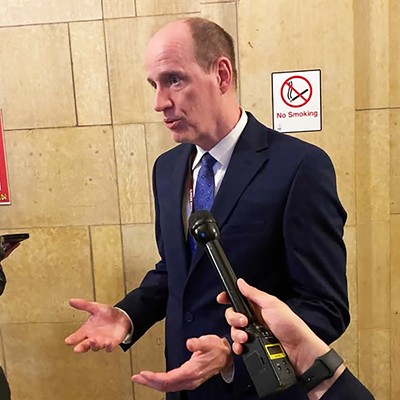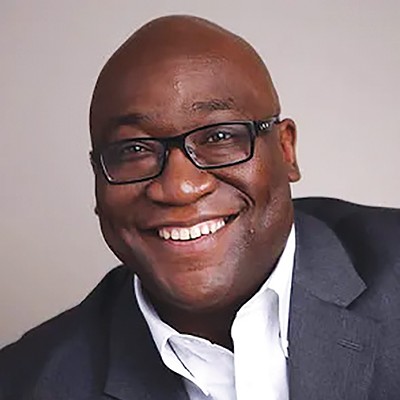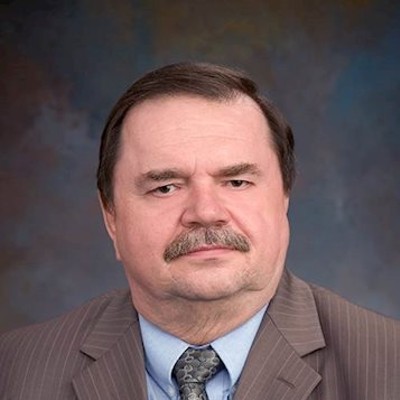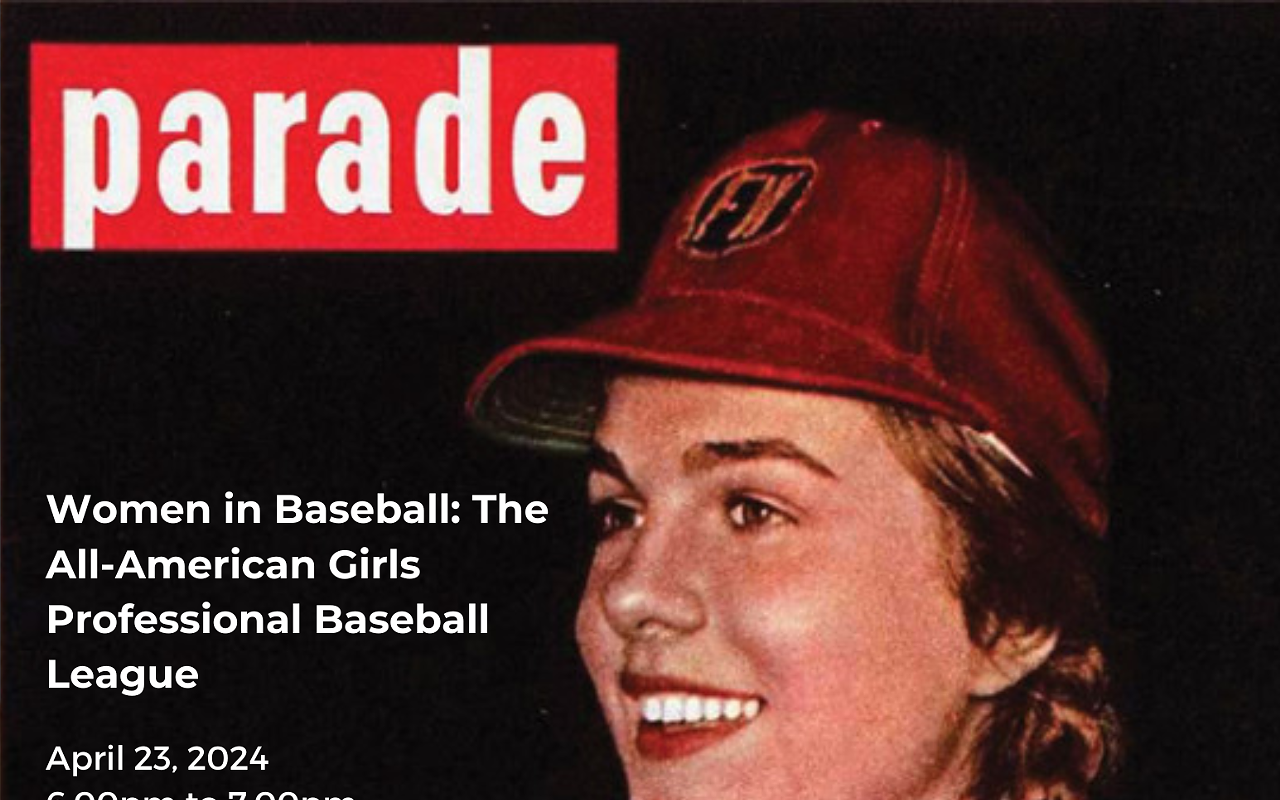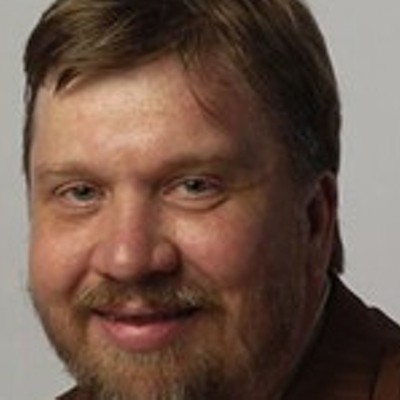Judge, prosecutor’s office exchange notes
“You’re rockin’ it”
[
{
"name": "Air - MedRect Combo - Inline Content 1",
"component": "11490391",
"insertPoint": "3",
"requiredCountToDisplay": "1",
"parentWrapperClass": "fdn-ads-inline-content-block"
},{
"name": "Air - MedRect Combo - Inline Content 2",
"component": "11490392",
"insertPoint": "7",
"requiredCountToDisplay": "5",
"parentWrapperClass": "fdn-ads-inline-content-block"
},{
"name": "Air - MedRect Combo - Inline Content 3",
"component": "11490393",
"insertPoint": "12",
"requiredCountToDisplay": "9",
"parentWrapperClass": "fdn-ads-inline-content-block"
}
]
Citing emails between U.S. District Court Judge Colin Bruce and employees of the U.S. attorney’s office, federal public defenders say the judge is so biased that defendants can’t get fair shakes.
“Both Judge Bruce and the United States attorney’s office act as if Judge Bruce is still the first assistant United States attorney (the position he held immediately before taking the bench),” public defenders write in a motion for a new trial filed on behalf of Sarah Nixon, who was convicted of international kidnapping in 2016. “This is ‘smoking gun’ evidence of Judge Bruce working with prosecutors from the United States attorney’s office against criminal defendants.”
Furthermore, engaging in communications with a judge without the knowledge of defense attorneys amounts to misconduct by the staff of the U.S. attorney’s office, say Nixon’s lawyers, who also accuse the office of engaging in a coverup to prevent disclosures of emails that should either have been shared with defense attorneys or never written.
Bruce was removed from hearing any criminal matters after Illinois Times in August reported on emails exchanged between Bruce and Lisa Hopps, a paralegal in the U.S. attorney’s office, during Nixon’s trial. In the emails, Bruce criticized the performance of prosecutors, made suggestions on how to question the defendant and assessed odds of acquittal. “The content of Judge Bruce’s emails to Ms. Hopps regarding Ms. Nixon’s trial reveals a judge who has determined the defendant is guilty and should be convicted, is frustrated and angry that Ms. Nixon might not be convicted, and is willing to share with the prosecutor’s office how the prosecutors handling the case could improve their cross-examination to help ensure a conviction,” Nixon’s lawyers wrote in the Oct. 25 motion for a new trial. “It is impossible to overstate how improper Judge Bruce’s actions were.”
Emails in the Nixon case weren’t outliers, according to defense attorneys. Earlier this month, attorneys for Jason Gmoser, who was convicted of child pornography charges in Bruce’s court and sentenced to life last year, requested a new trial based on emails between the judge and assistant U.S. attorney Elly Peirson, the prosecutor in the case. “You’re doing fine,” the judge wrote in one of the emails that wasn’t shared with defense attorneys. “Let’s get this thing done.”
Public defenders handling the Nixon case cited scores of other emails between the judge and both prosecutors and paralegals in the U.S. attorney’s office that weren’t shared with defense lawyers. The tone was sometimes jovial, as when Bruce referred to an approaching corruption trial of former U.S. Rep. Aaron Schock as “Schock-a-palooza” in a 2017 email to Staci Klayer, a paralegal in the federal prosecutor’s office. Referring to four criminal cases before him, the judge also wrote in the email exchange with Klayer that he would grant no further continuances. In their motion for a new trial in the Nixon case, lawyers say that message shows that the judge had already decided the merits of any motion for postponement that might come before him and, further, the heads-up to prosecutors would have allowed them to prepare for trials with information that wasn’t available to defense lawyers. “That is bias,” Nixon’s lawyers wrote.
In a 2015 email exchange with Klayer about a scheduling matter, Bruce tells the paralegal that a hearing date already set would work for him. “I’m good,” Bruce wrote. “Whatever. (easy-going judge…. Love my job….)” Klayer responded with praise. “Yeah dude – you’re rocking it,” the paralegal wrote. “You were made for that position.” She ended her message with a smiley-face emoticon.
Federal judges aren’t supposed to exchange messages about schedules with just one party in a case unless circumstances require it, Nixon’s lawyers write, and no such circumstances existed. “In addition, the casual and fawning tone of the improper ex parte communication in this and other cases reveals a bias in favor of the government and a pattern of unethical ex parte discussion that Judge Bruce apparently does not recognize as improper,” the attorneys wrote.
Also in 2015, Klayer sent Bruce a copy of a brief filed in the Seventh Circuit Court of Appeals by public defenders on behalf of Jermaine Speed, who was asking the appellate court to overturn a sentence handed down by Bruce in a drug case. Klayer sent the judge a copy of the brief less than 30 minutes after it was filed with the appellate court. In the brief filed last week, attorneys for Nixon say it appears that the paralegal was acting on instructions from attorneys in the office. “Unbelievable,” the judge replied in an email sent the next morning. “Thanks for the early warning.”
Three months later, Bruce praised assistant U.S. attorney Jason Bohm for his handling of a resentencing matter in the appellate court that included some of the same issues that Speed’s lawyers had raised. “Jason, nice job in U.S. v Armour,” the judge wrote in an email sent in the fall of 2015. “Good ammo for your Speed argument also. Top notch.” And Bruce praised Bohm when the appellate court sided with prosecutors and upheld the judge’s original sentence in the Speed case. “Well done, sir,” Bruce wrote. “Well done.”
In the brief filed last week, attorneys for Nixon say that federal prosecutors violated two rules of professional conduct setting forth ethical requirements for lawyers and that a judicial canon also was broken. “All of these rules were violated in Ms. Nixon’s case,” the defense attorneys wrote. “And, no one in the United States attorney’s office reported this misconduct at the time it occurred.” Furthermore, Nixon’s lawyers noted, lawyers under ethics rules have a duty to ensure that the conduct of subordinates is ethical, and federal prosecutors failed to ensure that paralegals who exchanged emails with Bruce acted appropriately.
Contact Bruce Rushton at [email protected].
“Both Judge Bruce and the United States attorney’s office act as if Judge Bruce is still the first assistant United States attorney (the position he held immediately before taking the bench),” public defenders write in a motion for a new trial filed on behalf of Sarah Nixon, who was convicted of international kidnapping in 2016. “This is ‘smoking gun’ evidence of Judge Bruce working with prosecutors from the United States attorney’s office against criminal defendants.”
Furthermore, engaging in communications with a judge without the knowledge of defense attorneys amounts to misconduct by the staff of the U.S. attorney’s office, say Nixon’s lawyers, who also accuse the office of engaging in a coverup to prevent disclosures of emails that should either have been shared with defense attorneys or never written.
Bruce was removed from hearing any criminal matters after Illinois Times in August reported on emails exchanged between Bruce and Lisa Hopps, a paralegal in the U.S. attorney’s office, during Nixon’s trial. In the emails, Bruce criticized the performance of prosecutors, made suggestions on how to question the defendant and assessed odds of acquittal. “The content of Judge Bruce’s emails to Ms. Hopps regarding Ms. Nixon’s trial reveals a judge who has determined the defendant is guilty and should be convicted, is frustrated and angry that Ms. Nixon might not be convicted, and is willing to share with the prosecutor’s office how the prosecutors handling the case could improve their cross-examination to help ensure a conviction,” Nixon’s lawyers wrote in the Oct. 25 motion for a new trial. “It is impossible to overstate how improper Judge Bruce’s actions were.”
Emails in the Nixon case weren’t outliers, according to defense attorneys. Earlier this month, attorneys for Jason Gmoser, who was convicted of child pornography charges in Bruce’s court and sentenced to life last year, requested a new trial based on emails between the judge and assistant U.S. attorney Elly Peirson, the prosecutor in the case. “You’re doing fine,” the judge wrote in one of the emails that wasn’t shared with defense attorneys. “Let’s get this thing done.”
Public defenders handling the Nixon case cited scores of other emails between the judge and both prosecutors and paralegals in the U.S. attorney’s office that weren’t shared with defense lawyers. The tone was sometimes jovial, as when Bruce referred to an approaching corruption trial of former U.S. Rep. Aaron Schock as “Schock-a-palooza” in a 2017 email to Staci Klayer, a paralegal in the federal prosecutor’s office. Referring to four criminal cases before him, the judge also wrote in the email exchange with Klayer that he would grant no further continuances. In their motion for a new trial in the Nixon case, lawyers say that message shows that the judge had already decided the merits of any motion for postponement that might come before him and, further, the heads-up to prosecutors would have allowed them to prepare for trials with information that wasn’t available to defense lawyers. “That is bias,” Nixon’s lawyers wrote.
In a 2015 email exchange with Klayer about a scheduling matter, Bruce tells the paralegal that a hearing date already set would work for him. “I’m good,” Bruce wrote. “Whatever. (easy-going judge…. Love my job….)” Klayer responded with praise. “Yeah dude – you’re rocking it,” the paralegal wrote. “You were made for that position.” She ended her message with a smiley-face emoticon.
Federal judges aren’t supposed to exchange messages about schedules with just one party in a case unless circumstances require it, Nixon’s lawyers write, and no such circumstances existed. “In addition, the casual and fawning tone of the improper ex parte communication in this and other cases reveals a bias in favor of the government and a pattern of unethical ex parte discussion that Judge Bruce apparently does not recognize as improper,” the attorneys wrote.
Also in 2015, Klayer sent Bruce a copy of a brief filed in the Seventh Circuit Court of Appeals by public defenders on behalf of Jermaine Speed, who was asking the appellate court to overturn a sentence handed down by Bruce in a drug case. Klayer sent the judge a copy of the brief less than 30 minutes after it was filed with the appellate court. In the brief filed last week, attorneys for Nixon say it appears that the paralegal was acting on instructions from attorneys in the office. “Unbelievable,” the judge replied in an email sent the next morning. “Thanks for the early warning.”
Three months later, Bruce praised assistant U.S. attorney Jason Bohm for his handling of a resentencing matter in the appellate court that included some of the same issues that Speed’s lawyers had raised. “Jason, nice job in U.S. v Armour,” the judge wrote in an email sent in the fall of 2015. “Good ammo for your Speed argument also. Top notch.” And Bruce praised Bohm when the appellate court sided with prosecutors and upheld the judge’s original sentence in the Speed case. “Well done, sir,” Bruce wrote. “Well done.”
In the brief filed last week, attorneys for Nixon say that federal prosecutors violated two rules of professional conduct setting forth ethical requirements for lawyers and that a judicial canon also was broken. “All of these rules were violated in Ms. Nixon’s case,” the defense attorneys wrote. “And, no one in the United States attorney’s office reported this misconduct at the time it occurred.” Furthermore, Nixon’s lawyers noted, lawyers under ethics rules have a duty to ensure that the conduct of subordinates is ethical, and federal prosecutors failed to ensure that paralegals who exchanged emails with Bruce acted appropriately.
Contact Bruce Rushton at [email protected].
Illinois Times has provided readers with independent journalism for almost 50 years, from news and politics to arts and culture.
Your support will help cover the costs of editorial content published each week. Without local news organizations, we would be less informed about the issues that affect our community..
Got something to say?
Send a letter to the editor and we'll publish your feedback in print!






